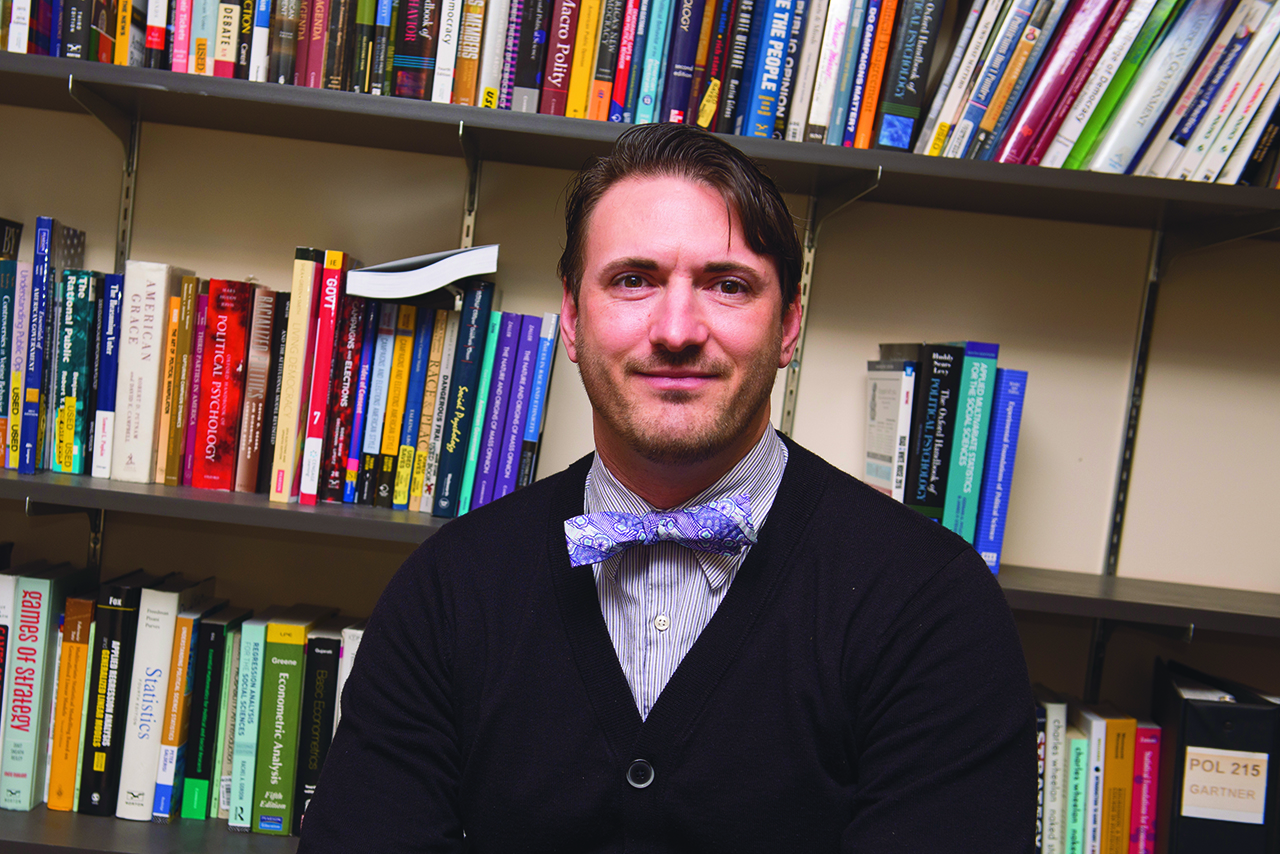Dr. Carl L. Palmer, an associate professor in the Department of Politics and Government, published two more articles in the last year. The first, which was part of a special issue of the journal Politics & Gender, considers the degree to which opposition to mask-wearing during the COVID pandemic is a gendered issue. The article, “Toxic Mask-ulinity: The Link Between Masculine Toughness and Affective Reactions to Mask-Wearing in the COVID-19 Era,” co-authored with Dr. Rolfe D. Peterson of Susquehanna University, argues that there is a linkage between stereotypical masculine attitudes and how individuals react to wearing masks. Utilizing data from an original survey, they find that the more strongly a person believes that men should be strong and tough, the more negatively they react to mask-wearing.
The second article, also co-authored with Peterson, appeared in Social Science Quarterly, an interdisciplinary journal, and focused on an alternative means through which individuals develop greater or lesser social connections and social capital; by virtue of their physical appearance. The article, “Physical Attractiveness, Halo Effects, and Social Joining,” which is part of a larger book-length project on the political implications of an individual’s physical appearance for how they form political attitudes and beliefs, focuses on how individuals develop social connections. With data from a longitudinal survey and a nationally representative survey experiment, analyses suggest that better-looking individuals enjoy social advantages early in life, but with age, less-attractive individuals effectively, ‘catch up’ in terms of the development of social connections.

